"SLC-S25/W1 | Community World Tour : Traditional Cuisine"
Greetings friends and welcome to my blog. Today I am glad to be a part of this beautiful learning challenge that depicts not just any food but our traditional foods deep in culture and family history.
On growing up, one of the things I relished so much was a weekend tradition in our family. Forthnightly, Saturday nights had us dancing in aspirational and joy as mum would always come back home from the weekend markets brandishing a bag that does not just contain the groceries for the weekend but the right ingredients needed for to prepare our famous African salad popularly known as Abacha.
Abacha for me was not just a meal it was a beautiful addiction that reminds me of the humble background I came from. Mum would always prepare it with so much love as daddy loved it and we line up as we brandished our plates in the kitchen to take our share of the family tradition rooted in love. Till tomorrow this delicacy has always been a great part of my existence and every time I get to have another taste of it, it always reminds me of home where all the goodness of traditional dish rooted in love started.
Abacha or African salad like we call or is made from cassava tubers sliced and dried and garnished with different traditional spices like we would see in the descriptions below.
Ingredients:
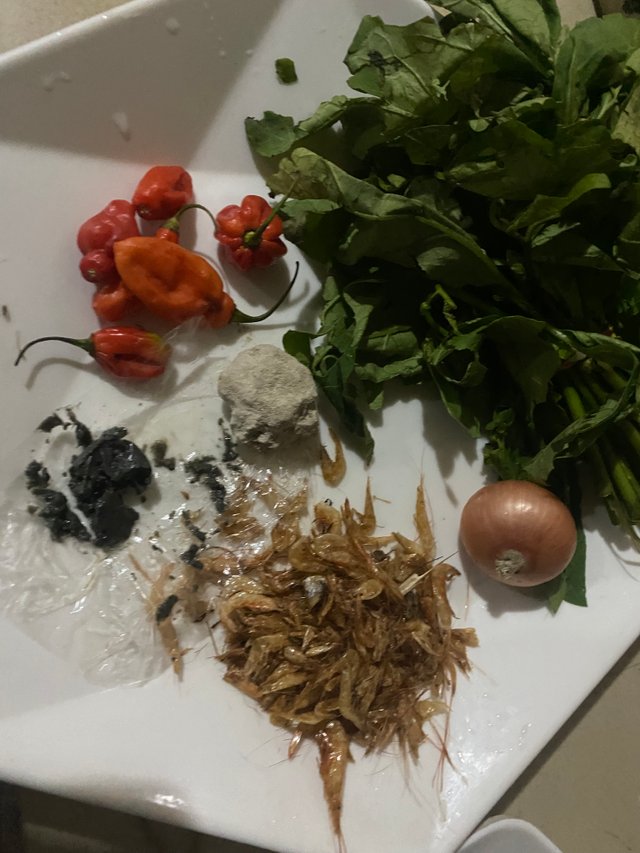 | 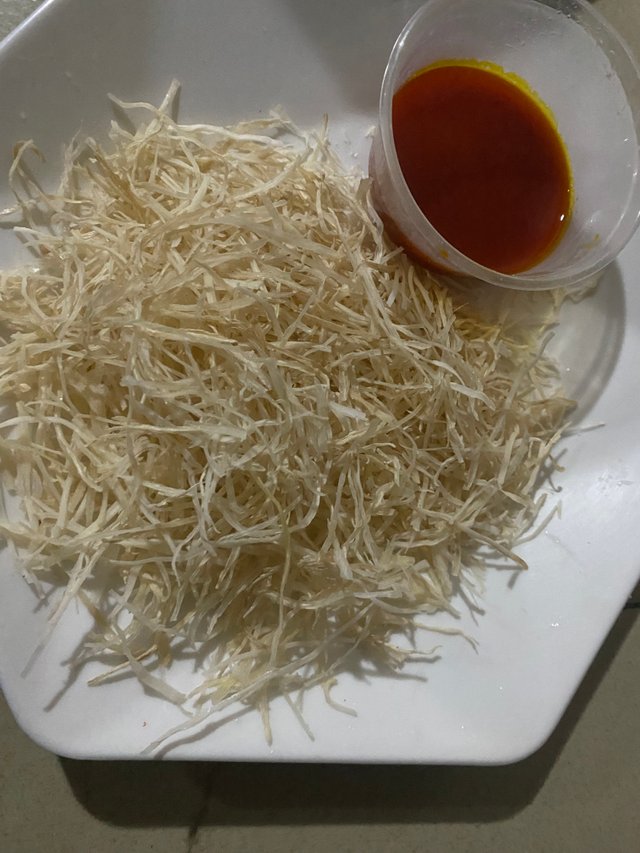 |
|---|
Cassava shreds (Abacha)
Crayfish
Potash
Pepper
Ogiri
Garden egg leaves
Salt and seasoning
Onions
Cassava shreds or the Abacha: is the main ingredients in the traditional dish. The cassava is processed, boiled and shredded into tiny long pieces and left to dry in the sun over time. This makes it to be able to last the taste of time.
Potash: This is an alkaline element that is dissolved in water and mixed with oil to get the traditional sauce with which the entire ingredients is incorporated together.
Crayfish : I love to add it without grinding it as it adds flavor and richness to the traditional dish.
Pepper: Fresh and sliced into tiny bits add spiciness to the food.
Onions: makes for flavor. Can be used raw or slightly cooked based on preference. I love it raw.
Ogiri: a native spice for aroma and flavour made from fermented bean cakes. It’s add a whole new dimension of flavor to the dish.
Garden egg leaves: nutritious herbs used to garnish the dish. Can be incorporated into the entire dish or put separately as garnish.
Procedure
| Soak the Abacha in warm water for about ten minutes, wash later and allow to dry on a sieve. | 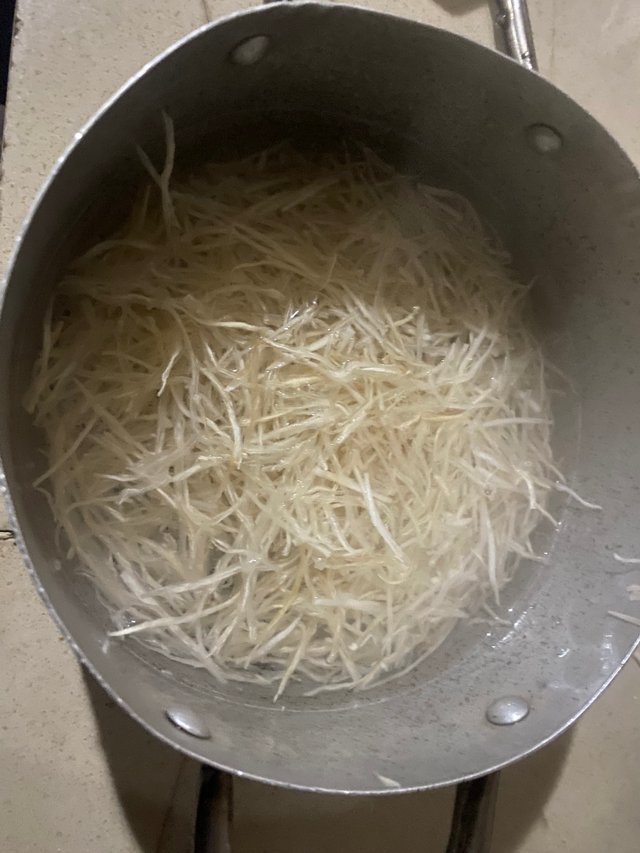 |
|---|
Wash the leaves and cut into tiny pieces and dice the onions, pepper and wash the crayfish.
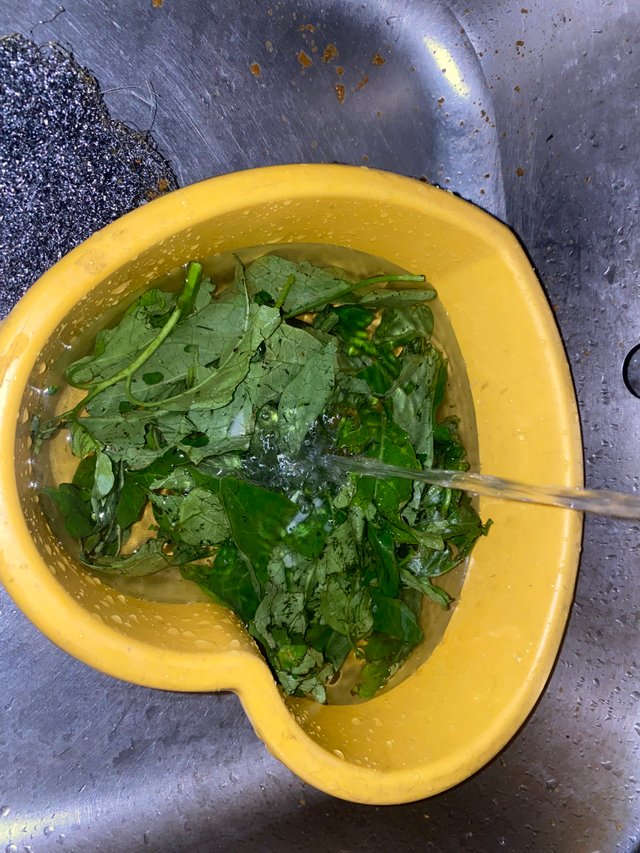 | 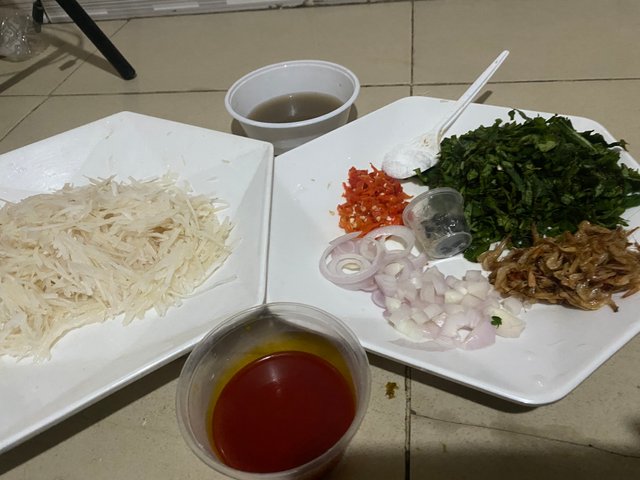 |
|---|
Dissolve some pottash in small quantity of water and add the red oil to it. Turn the mixture to give a thick yellow paste.
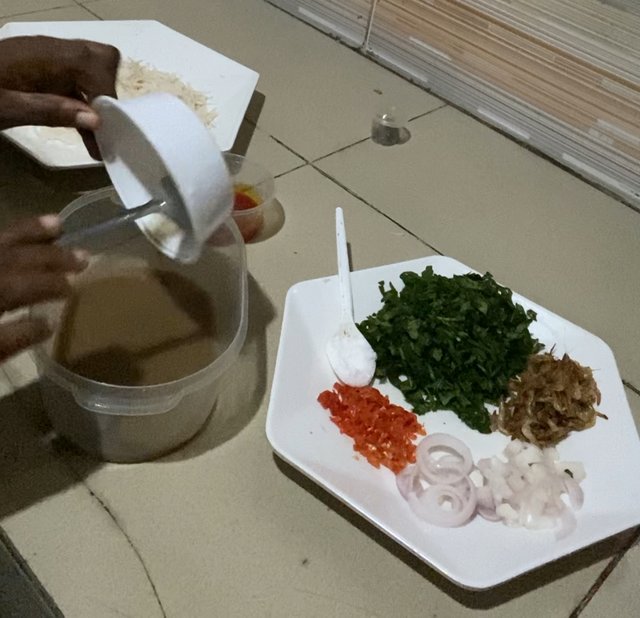 | 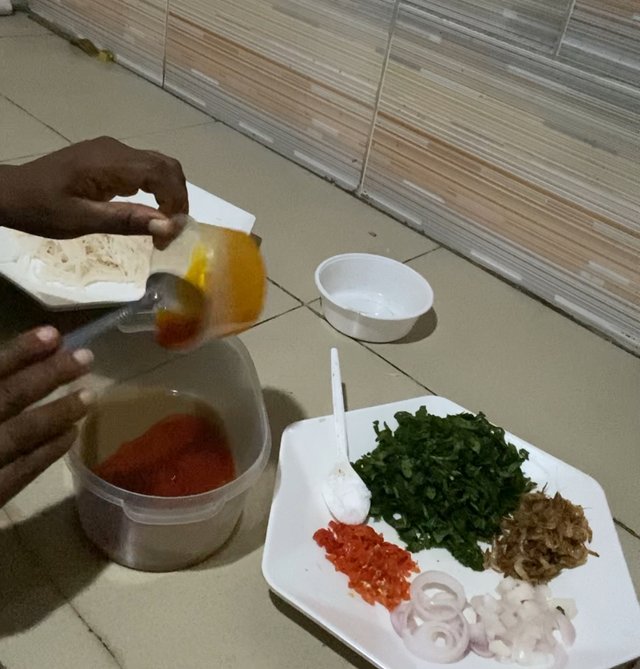 | 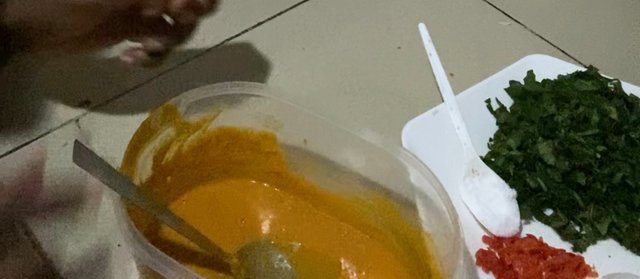 |
|---|
Add the cassava shreds, sliced onions, pepper, crayfish, leaves and salt to taste.
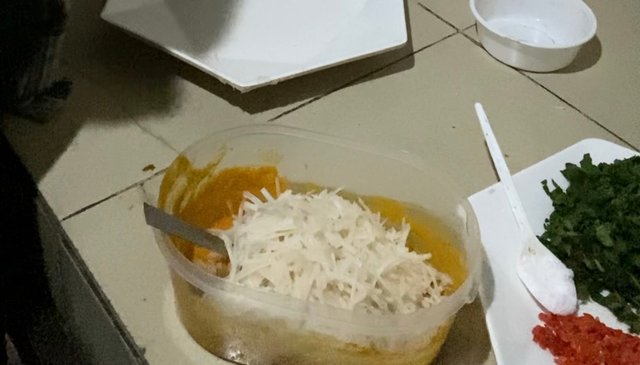 | 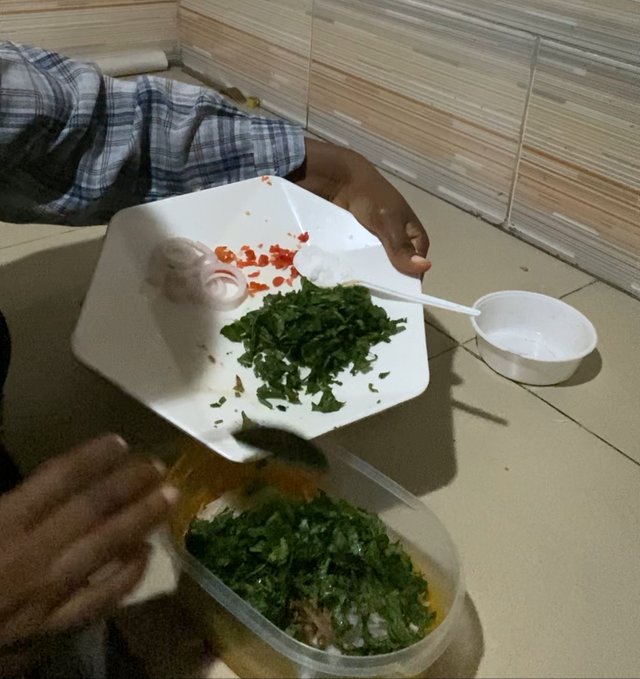 |
|---|
| Mix all together and serve while garnished with some leaves, onions and pepper. | 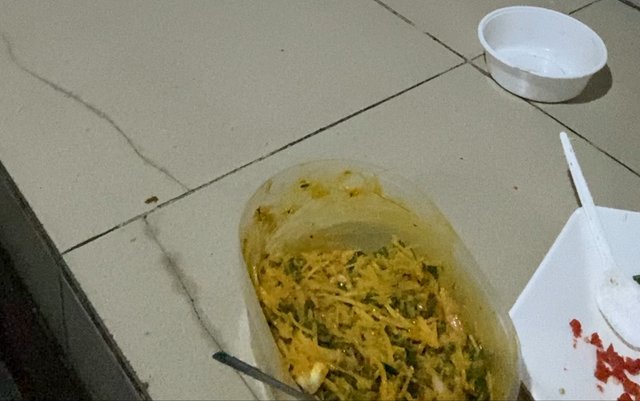 |
|---|
| The African salad is ready to be served. | 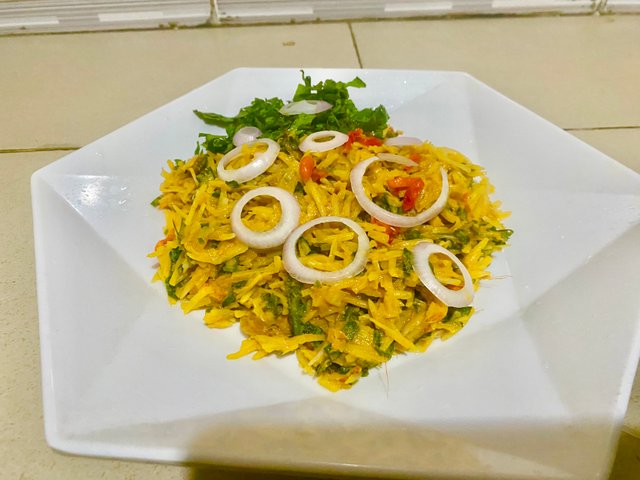 |
|---|
The location where this dish is prepared is Odunsi street Lagos, state, Nigeria.
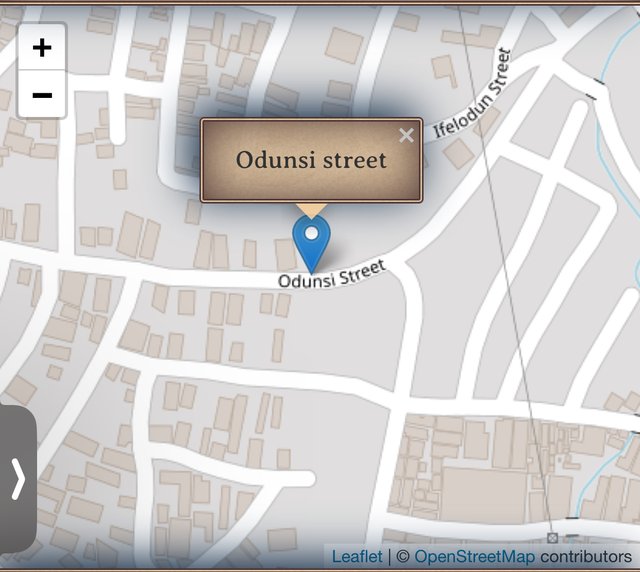
[//]:# (!steematlas 6.53595816 lat 3.39483976 long Odunsi street d3scr)
TYPE LESS SMILE MORE
Abacha is not just a traditional meal, it’s a pleasant addiction rooted in love and family culture, a reminder of a humble beginning well cherished.
Posted with Speem
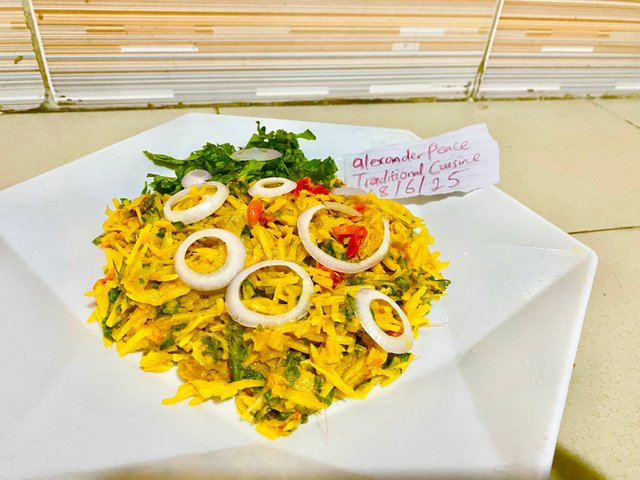
Thank you @alexanderpeace for participating in Week 1 of the Community World Tour on Traditional Cuisine!
Below is your detailed evaluation based on the official 10-point scoring criteria:
✅ Total Score: 9.5 / 10
A superb and heartfelt contribution. The traditional Abacha recipe is beautifully documented and emotionally grounded. To reach a perfect score, consider:
Thank you again for sharing your family’s culinary heritage with the community!
— Community World Tour Jury
Greetings sir @kouba01,
Thanks you for the review of my post sir but my video was uploaded through speem . It’s written at the base of my post. See it
You didn’t give me the full mark sir. Please confirm
Hello sir @kouba01, your attention is needed here sir on my grading, I used speem to upload the video
@kouba01, Sir I have been calling your attention to the grading you gave me. Please review it. I posted with speem.
Hello alexanderpeace
Es muy interesante el platillo que nos presenta, en mi país comemos Yuca pero jamás la había visto de esta forma.
Una ensalada que debe tener mucho sabor, por los demás condimentos y especias que le agrega.
Bonita presentación!
Buena suerte
Yes friend. It really has alot of Flavour and it’s very delicious. Thanks for stopping by.
Saludos. Me resultó muy interesante esta ensalada que sientes tan arraigada a tu historia familiar.
Por la mayoría de los ingredientes creo que tendría que ir a Odunsi para degustarla, pero igualmente te pregunto ¿La yuca para esta ensalada se consigue en el mercado o debes prepararla en casa?
It’s a readily available in the market. This quantity I used is sold for two steem
It means it's easier for the families to prepare the salad, that's great.